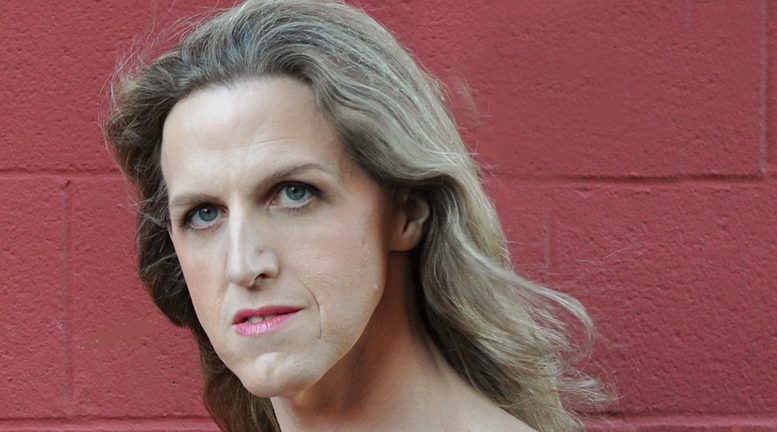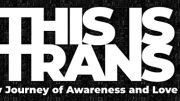By: Lorelei Erisis*/TRT Columnist—
I recently received this question from an old friend of mine.
Community. It’s incredibly important. But then, I doubt I need to tell you that. It’s not hard to find somebody saying this. Look almost anywhere on the Internet, especially in activist leaning circles, and you’ll easily find someone talking about the importance of community.
But so often when you hear people talking about “community” nowadays, they are speaking in an abstract. We speak of the LGBTQ community, or the trans community, or the queer community, or any number of other identity-based, often large, and/or ephemerally defined groups.
And, for so many of these communities, the place they come together most regularly is online. We have Facebook Groups and subreddits, Twitter chats, and assorted forums, newsgroups, and virtual worlds.
Honestly, I’m not here to be a grumpy “old” person. I love those online communities, and political blocs just as much as anyone else and I make fine use of them all for the work I do as an activist and performer.
Recently, however, I was reminded of the importance of “community,” not just in the online, virtual sense but in the “real world,” immediate and visceral, face-to-face sense.
A couple of weeks ago, I went to a “Lesbian/Sapphic Night” at a delightful little local bar in Easthampton, Mass. (the town right next to Northampton) called “The 413.” It was filled with “woman-centric” women, non-binary (and assorted adjacent identities), cis and trans people. The crowd skewed a little on the young side, as crowds like this at events like these will do. But, there was also a smattering of people representing age groups up into the 50s, including myself, somewhere in between.
It completely warmed my heart. And, over the course of the evening, I began to think just how much I missed this sort of in-person community and how vital this off-line socialization is to the communities I hold dear.
The reason I even knew about this “Lesbian/Sapphic Night” was because I heard about it from one of the organizers, a woman I met while attending a newly formed social/support, “Trans Woman & Fem(me) Meetup” held at a local church in Northampton—where I live.
But before I go on, let me give you some context.
When I first moved to Northampton, Mass., for the first of several times, as a teenager in the early 90s, it was in its heyday of being nationally publicized as, “Lesbianville USA!” The area was filled with more gay and lesbian bars than you could shake a rainbow at. It was a community that was vital and active.
If you wanted to meet others like you, there was a place you could go, in-person, to do just that. At least provided you were over 21. (Or, ahh, you were a 6’4”, especially “mature looking,” 19-year-old like I was, or you knew someone who was especially handy with, umm, “graphic design”…). And, even if you couldn’t get into the bars and clubs, there were house parties and discussion groups and cafes where interaction was much more de rigueur and encouraged than it is today.
Now I’ve come back to town and all the old gay bars are gone. The cafes filled with folks staring at computer screens. The last dedicated “gay bar” in town, “Divas” has been closed almost three years now.
Yes, in some senses, this is all (at least) partly a result of some pretty positive advances. The world, or at least this part of the country, has gotten a lot safer and more accepting for gay and lesbian folks and in varying degrees, trans people. LGBTQ people have won great advances both socially and legally.
And to a large extent, the disappearance of all the gay and lesbian bars and dedicated meeting spots is a side effect of our ability to safely go where we please. We no longer have to go to the gay bar to seek safety in numbers. We can much more safely just go the neighborhood spot than we ever could in the bad old days.
Or, at least that’s most true if you are traditionally gay or lesbian and cisgender. Heteronormatively acceptable. Much less so if you are visibly queer and/or trans or non-binary.
Which brings me back to the present, where queer and trans (and queer trans) folks have made great strides of visibility and gathered incredibly large and diverse communities through the use of these new tools—that make it so much easier to find each other in the virtual world. But, there is still something lacking. So many of the fights and fractures I see in the online communities I belong to happen at least partly as a result of the anonymity and intellectual distance that are side effects of people who are rarely if ever, sharing the same physical space.
I know at this point I really do sound like an “old” person. Please know, I truly understand and celebrate the positive aspects of these virtual communities. But, I also believe there is an incredible importance to the in-person community. There’s a bonding and a human sense of empathy that happens when we see and sometimes even (in an appropriate and consensual manner) touch each other when we can hear the nuances of each other’s speech inflections—read our body language; when we share a drink together, dance together. That bonding is also there when we spontaneously laugh, simply because the sound of someone else laughing is so infectious or when we hug a friend who is crying.
I believe the connections we make through these in-person communities carry over to our online communities as well. We are much more likely to be kind and listen to each other more closely and carefully online when we are likely to also see each other in-very-accountable-person on occasion. It’s much easier to imagine unheard nuances of communication when you know what another person’s speech patterns and vocal tics are like when you can picture their body language. Empathy comes more naturally when you have shared a laugh or a hug with a person when you’ve shaken their hand and looked in their eyes.
So please, I urge you to step outside. Find the people near you who are working to build, or perhaps re-build, these vital in-person communities. Support them with your own organizational networks, your dollars, and most especially, your physical presence.
The gay and lesbian bars of old are mostly gone now. That’s sad for those of us who knew them, but it’s okay. If we work at it, we can make new spaces, build new networks, and bring new and old communities together.
I don’t know about you, but that’s a world I find worth living in. And I would love for the opportunity to share a drink or a laugh with any of you lovely folks someday.
Slàinte!
* Lorelei Erisis is an actor, activist, adventurer and pageant queen. Send your questions about trans issues, gender and sexuality to her at askatranswoman@gmail.com.







